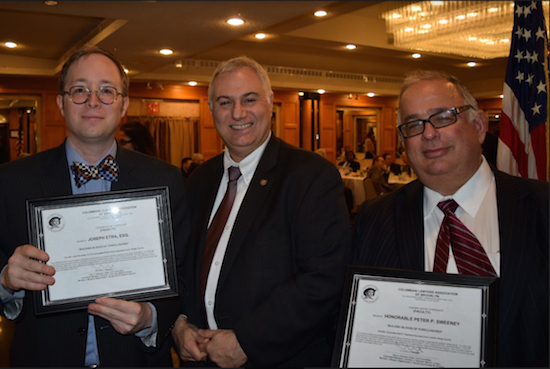Justice Sweeney talks building blocks of foreclosures at Columbian Lawyers meeting

The Columbian Lawyers Association hosted Justice Peter Sweeney and attorney Joseph Etra for a continuing legal education (CLE) seminar, “The Building Blocks of Foreclosures,” at its monthly meeting at Rex Manor in Dyker Heights on Tuesday.
“Judge Sweeney had 15 years of experience in the field of civil litigation prior to joining the bench where he represented both plaintiffs and defendants in a broad range of cases,” said Dean Delianites, president of the Columbian Lawyers Association. “In the approximately 15 years since he joined the bench, he has presided over hundreds of jury and bench trials and published numerous decisions.
“We also have Joseph Etra with us, who is the principal law clerk in the foreclosure part,” Delianites continued. “As part of the legal staff of the highest volume foreclosure department in New York state, Joe has conferenced thousands of cases, written hundreds of opinions and negotiated many amicable resolutions.”

Brooklyn Boro
View MoreNew York City’s most populous borough, Brooklyn, is home to nearly 2.6 million residents. If Brooklyn were an independent city it would be the fourth largest city in the United States. While Brooklyn has become the epitome of ‘cool and hip’ in recent years, for those that were born here, raised families here and improved communities over the years, Brooklyn has never been ‘uncool’.